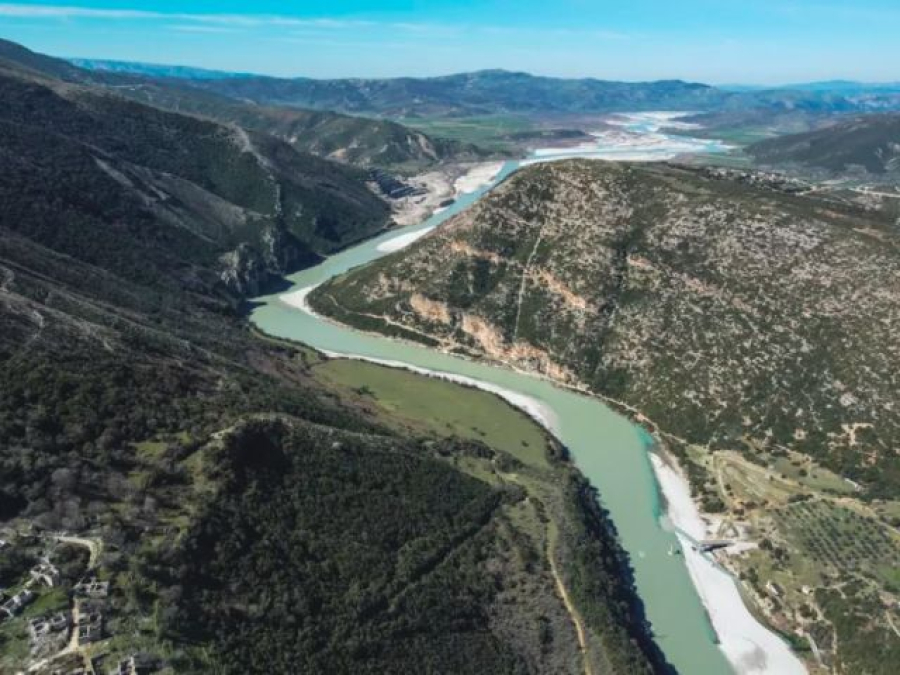The Albanian government has declared the Vjosa River as the first wild river national park in Europe, following an almost decade-long campaign by environmental NGOs. The Vjosa River is one of the last free-flowing waterways in Europe and is home to over 1,000 animal and plant species, including the critically endangered Balkan lynx and the endangered Egyptian vulture. The river flows 168 miles from the Pindus mountains in Greece through narrow canyons, plains, and forests in Albania to the Adriatic coast.
The creation of the national park is the result of a collaboration between the Albanian government, international experts, NGOs from the Save the Blue Heart of Europe campaign, the International Union for Conservation of Nature (IUCN), and outdoor gear company Patagonia. The 12,727 hectare (31,500 acre) park aims to ensure that the Vjosa River and its unique ecosystems are safeguarded. The park has been given IUCN category II park status, a high level of protection similar to that of a wilderness, covering “large-scale ecological processes”, species and ecosystems, crucial to ensuring dams and gravel extraction are banned. It is expected to be operational in 2024.
The creation of the national park has been described as a “truly historic moment” for nature as well as social and economic development by Albania’s prime minister, Edi Rama. He announced the park at a ceremony at Tepelenë castle overlooking the river, attended by stakeholders and ministers. Rama emphasized that “protecting an area does not mean that you enshrine it in isolation from the economy”, citing that national parks attract 20% more tourists compared with non-protected areas. Albania hopes to regenerate villages in the Vjosa region through ecotourism. The country attracted 7.5 million visitors last year, more than twice its 2.8m population.
The park will encompass the 118 miles of the Vjosa River in Albania, three main tributaries, and some land, including areas at risk of flooding. Phase II will add other tributaries. Unlike the IUCN’s Wilderness Protected Areas, which limit the number of visitors, it will allow recreational tourism and some other activities such as local fishing, particularly for 60,000 residents in the catchment.
The Albanian government is also starting a joint process with the Greek authorities to create the Aoos-Vjosa transboundary park, aiming to protect the entire river across both countries, who agreed in January to sign a memorandum of understanding specifying the next actions.
Boris Erg, director of the European office at IUCN, commended the Albanian government for its leadership and ambition and invited other governments to show similar ambition to protect 30% of the planet by 2030. Europe has the most obstructed river landscape in the world, with barriers such as dams, weirs, and fords, estimated to number more than a million, according to a 2020 EU study in 28 countries. Fragmenting of rivers affects their ability to support life.
Ulrich Eichelmann, a conservationist and founder of Riverwatch and part of the Save the Blue Heart of Europe campaign, praised the creation of the national park as a blueprint for wild rivers elsewhere. He stated that most people in central Europe have never seen a wild, living river, free from human interference, that isn’t diverted or dammed or built up with embankments and where biodiversity is low as a result. In contrast, the Vjosa River is full of complexity and without interference.
Karen McVeigh/The Guardian














